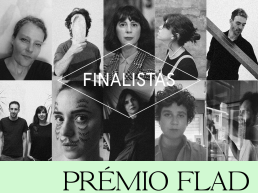A team of five students from Escola Secundária Francisco Franco (Madeira) has created an autonomous aquatic robot that guides itself by GPS to help in the study of ocean regions and in the development of sustainable practices that preserve marine ecosystems.
The ph7-SPAR project, developed by five students from Escola Secundária Francisco Franco in Funchal, is the winner of the 2nd Edition of the FLAD Atlantic Junior Prize, launched by FLAD and Ciência Viva. This award, aimed at secondary and professionals schools across the country, distinguishes scientific projects focused on the Atlantic and the sustainable use of their resources.
The winning project stood out from a group of 15 finalists by involving the creation of a water robot that moves autonomously by GPS, and that, throughout the programmed trip, captures images, videos, and collects data, such as water temperature, salinity, pH, and other marine and atmospheric information.
The goal of the project is to gather more knowledge about the oceans in order to create sustainable mechanisms to conserve marine ecosystems. The prototype consists of two hulls covered with fiberglass and other materials that prevent wear and tear and protect against ultraviolet rays. The model is also composed of two solar panels and a motor to ensure the correct operation of the structure.
The school of the five students, guided by teacher Jorge Monteiro, will receive 2 thousand euros for technological equipment and materials. The winning team will also be awarded a trip to Boston, USA, with the objective of exposing the students to places and institutions of scientific interest, in order to stimulate the youngest to the importance of science.
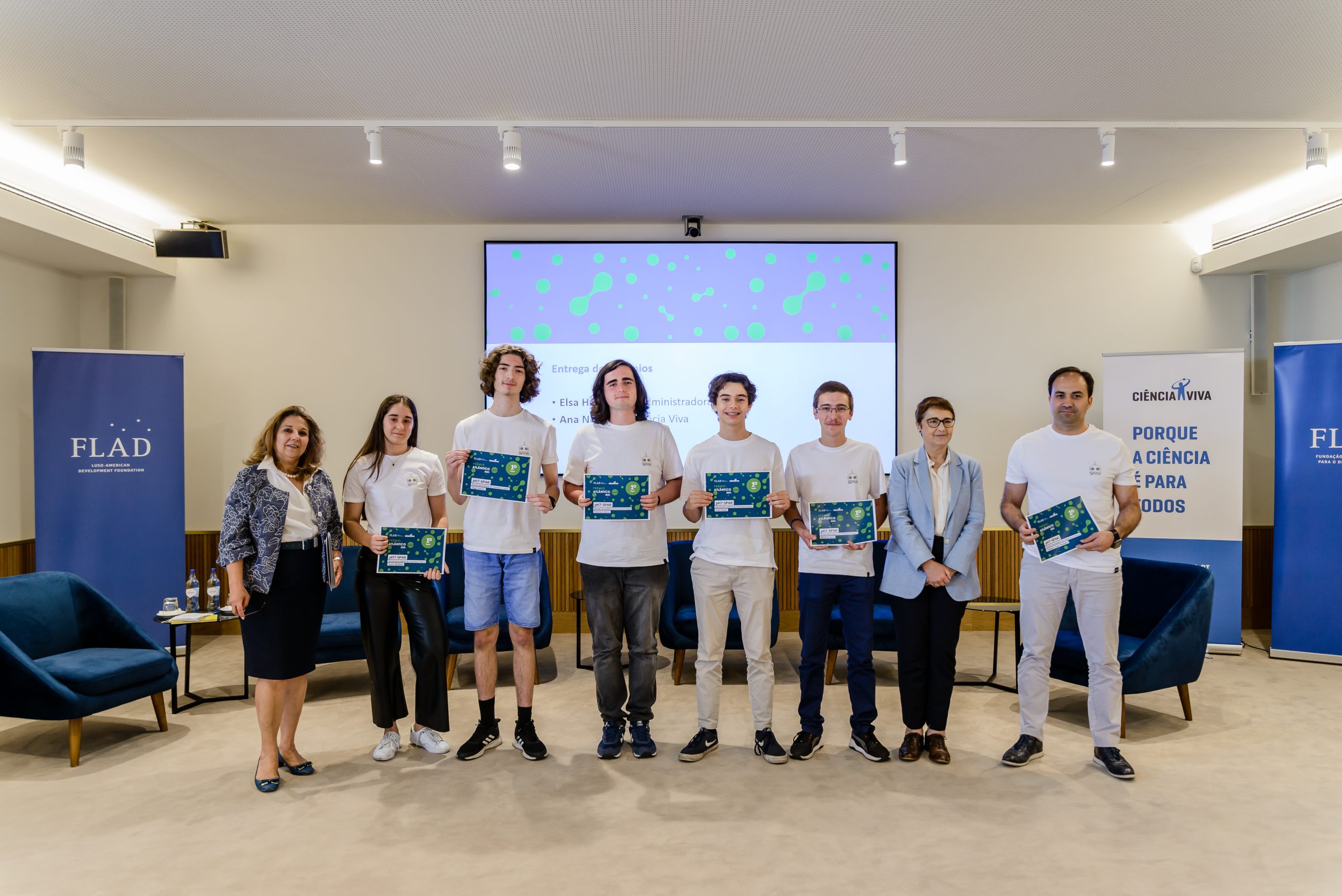
In 2nd place was the Tub Sailors project, from the team of Agrupamento de Escolas de Sampaio, Sesimbra, with a project to build a catamaran powered by solar energy. The objective is to analyze the state of degradation of the water quality in the Albufeira Lagoon, during the period in which it is isolated from the Atlantic Ocean. The value of the prize is 2 thousand Euros.
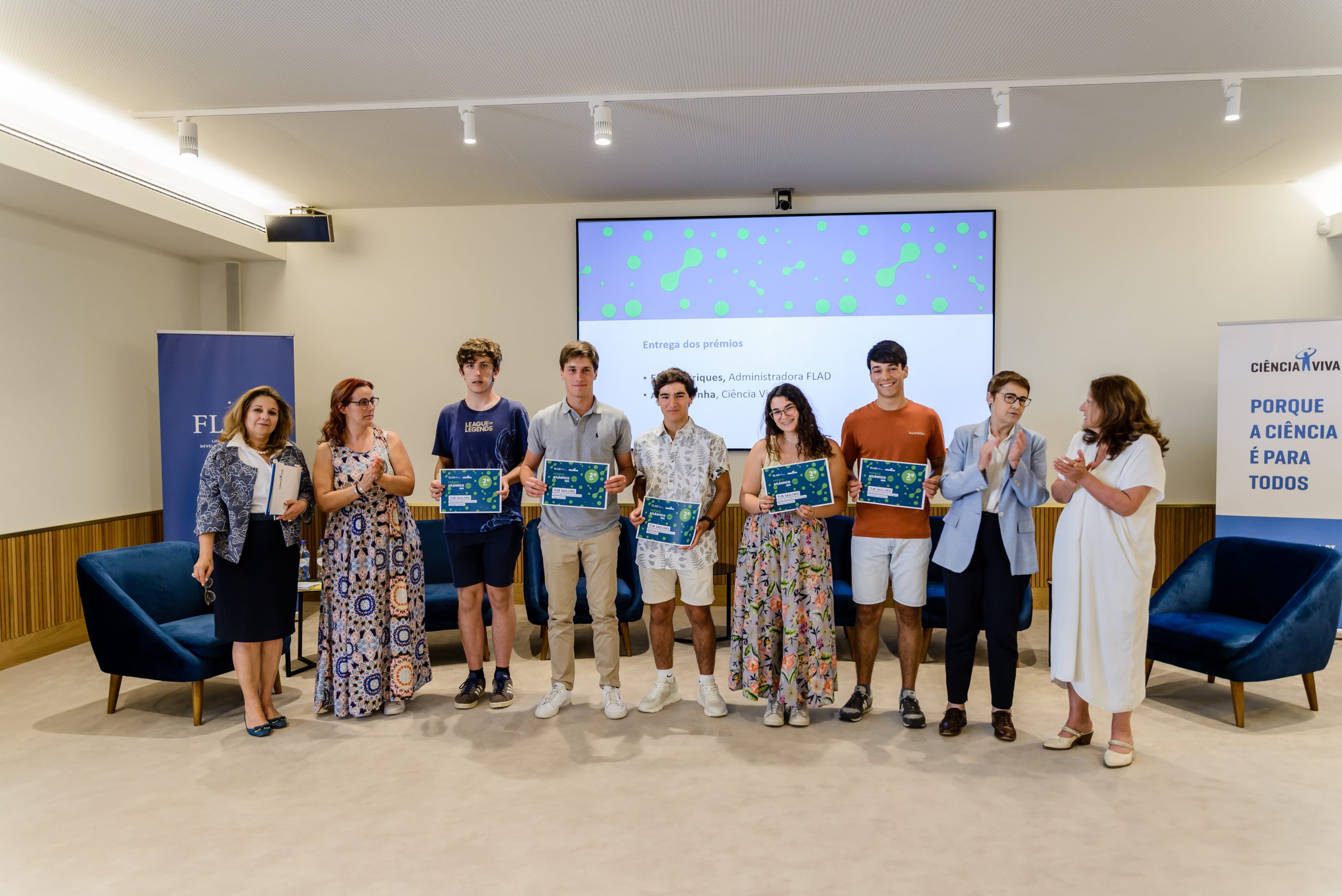
The 3rd place, ex-aequo, was conquered by the RibaWatchers project, from Colégio Ribadouro do Porto, and by EPSWaterV.2, from Escola Profissional de Salvaterra de Magos , who will share the 1500 euro prize.
- RibaWatchers aims to create a network for monitoring the water quality of rivers to detect possible sources of pollution, ensuring their elimination and preventing future contamination of freshwater tributaries and the ocean.
- EPSWaterV.2, through an autonomous and sustainable surface vessel, intends to collect various data to monitor the quality of river water and thus contribute to the preservation of river quality.
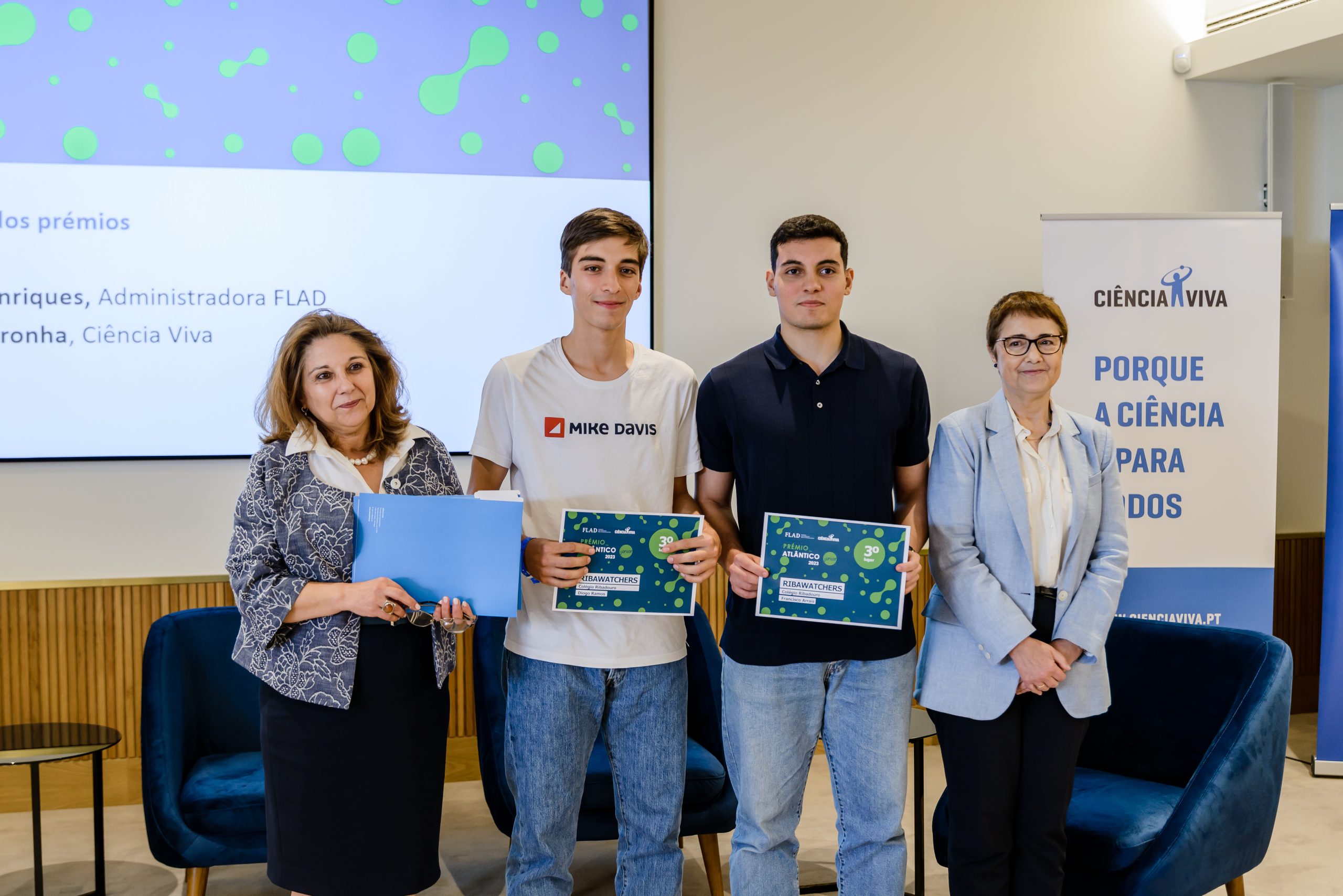
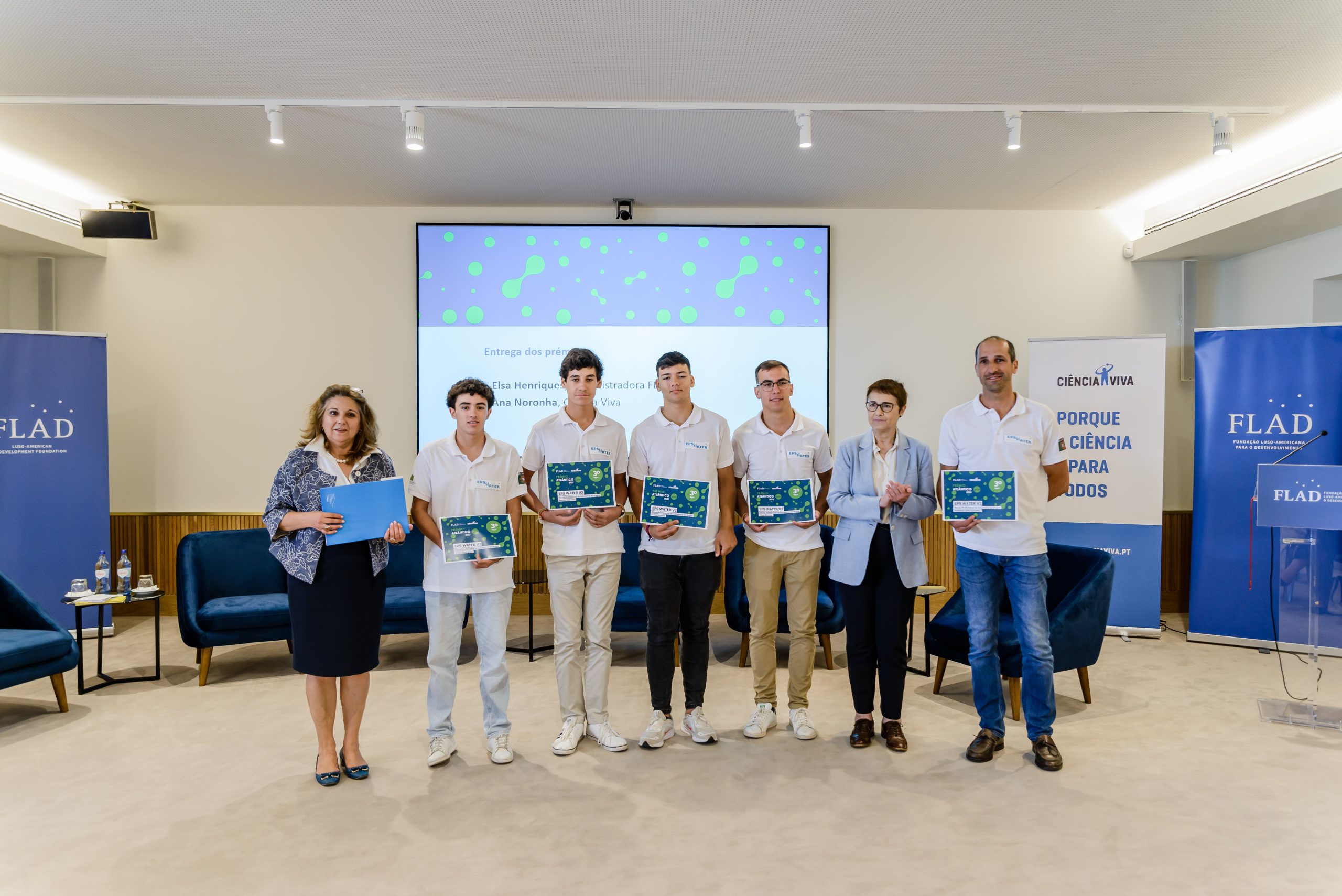
Congratulations to all for the excellent projects!
Related Posts
23 de July, 2024
Inês Thomas Almeida next FLAD/Saab Visiting Professor at UMass Lowell
Musicologist, she holds a PhD in…
3 de July, 2024
B+S Bispo D. Manuel Ferreira Cabral School, from Madeira, wins Atlântico Junior Award
Students win with a project to create…


